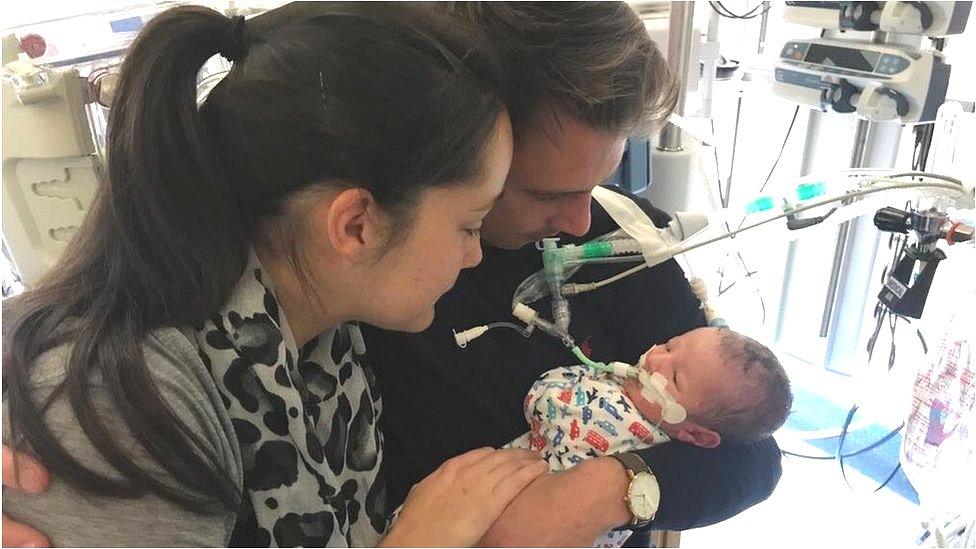East Kent maternity deaths: Minister pledges to act over failings
- Published
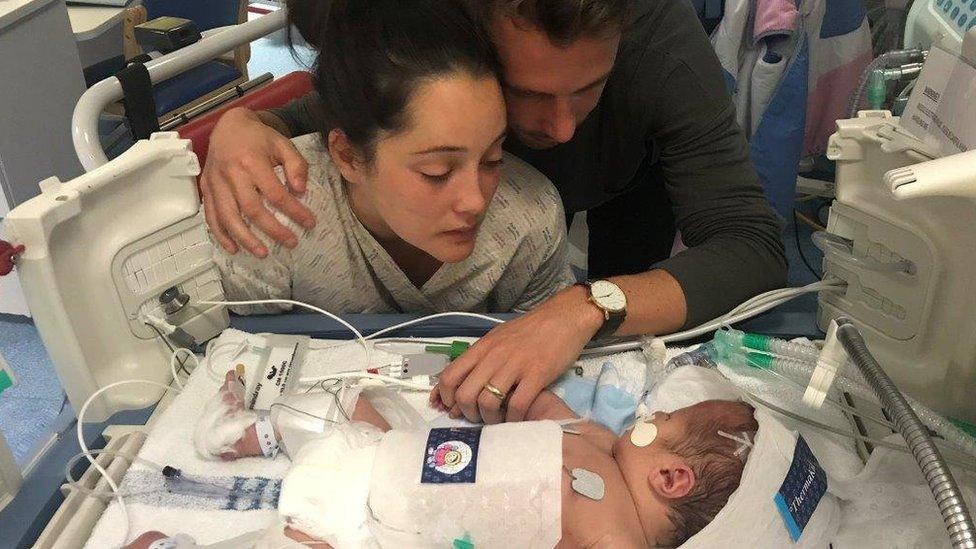
Harry Richford would have survived but for failings by the hospital
A minister pledged to "listen, learn and act" after a damning report found up to 45 babies might have survived if they had better care at an NHS trust.
Dr Caroline Johnson paid tribute to families' "tireless determination to tell the truth" in East Kent.
A review into maternity services at two hospitals in Margate and Ashford found catastrophic failings.
Dr Johnson told the Commons steps were being taken to improve maternity care in East Kent and country-wide.
The health minister said: "Nothing we can do can bring back the children that they have lost, an awful tragic void of a life never lived.
"But now we know their stories we will listen, learn and act so that no other family should ever experience such a pain."
Labour MP for Canterbury Rosie Duffield said it was clear there was an "utterly toxic and dysfunctional culture" within the trust's maternity services.
And the Conservative MP for Faversham and Mid Kent, Helen Whately, called for reassurance for parents-to-be that East Kent's maternity units were safe.
Dr Johnson said in response that a maternity safety support team was "working actively on the ground" to ensure lessons were learned.
The independent investigation, led by Dr Bill Kirkup, looked at maternity care at the Queen Elizabeth The Queen Mother Hospital (QEQM) at Margate and the William Harvey Hospital in Ashford.
Of the 202 cases reviewed between 2009 and 2020, the outcome could have been different in 97 cases. A total of 45 of 65 baby deaths could have been different had care been better, the review found.
Among those who have campaigned for changes at the trust are the family of Harry Richford, who died in "wholly avoidable" circumstances seven days after being born in 2017 at the QEQM.
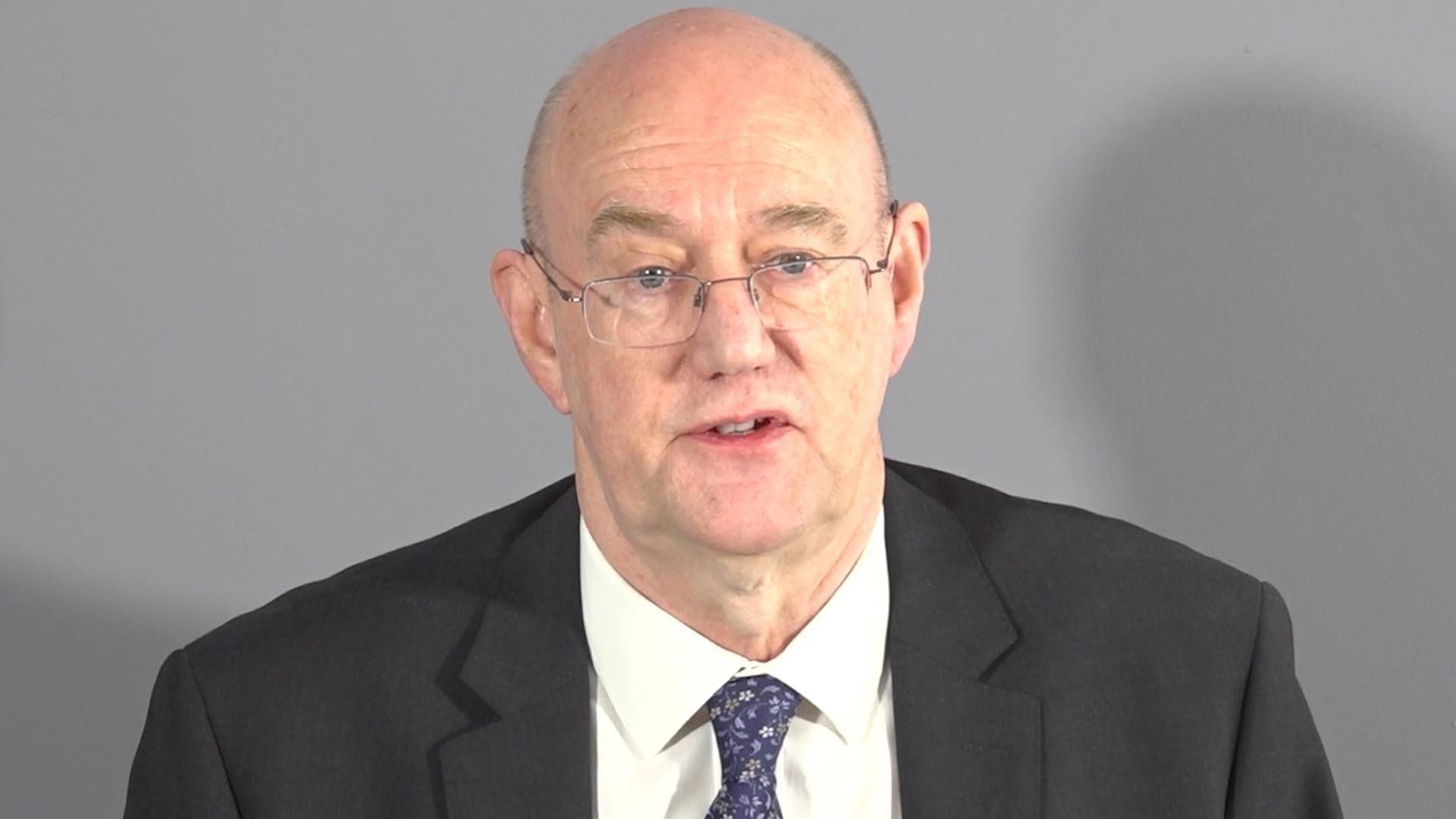
Dr Bill Kirkup said his team's findings were shocking
In the 182-page report, experts highlighted failings in areas including team-work, professionalism, compassion and listening to families.
Some staff acted "as if they were responsible for separate fiefdoms, cultivating a culture of tribalism", the report said.
A prominent theme was the presence of "challenging personalities, big egos, huge egos", with one group dubbed "the A-team".
Dysfunctional working between and within groups was "fundamental to the sub-optimal care provided in both hospitals".
And a failure to take notice of women when they raised concerns, questioned their care and when they challenged decisions about their care was strongly highlighted.
Helen Gittos felt blamed by medical staff for her daughter's death
Trust chief executive Tracey Fletcher has apologised unreservedly for the "harm and suffering" caused and said the trust would act on the report.
She said it had increased numbers of midwives and doctors, and invested in staff training and in listening to and acting on feedback.

If you have been affected by any issues in this story you can contact the BBC Action Line for advice.

Follow BBC South East on Facebook, external, on Twitter, external, and on Instagram, external. Send your story ideas to southeasttoday@bbc.co.uk
- Published19 October 2022
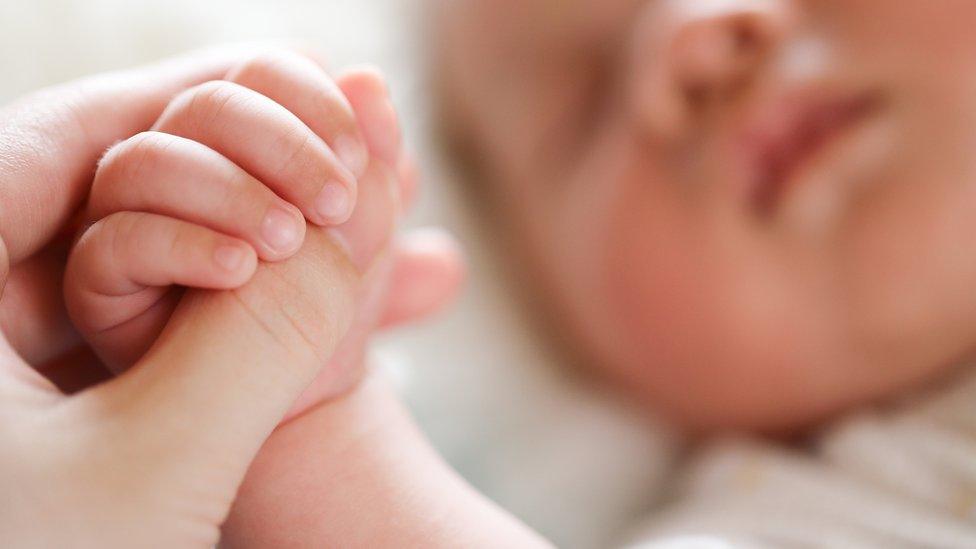
- Published18 October 2022
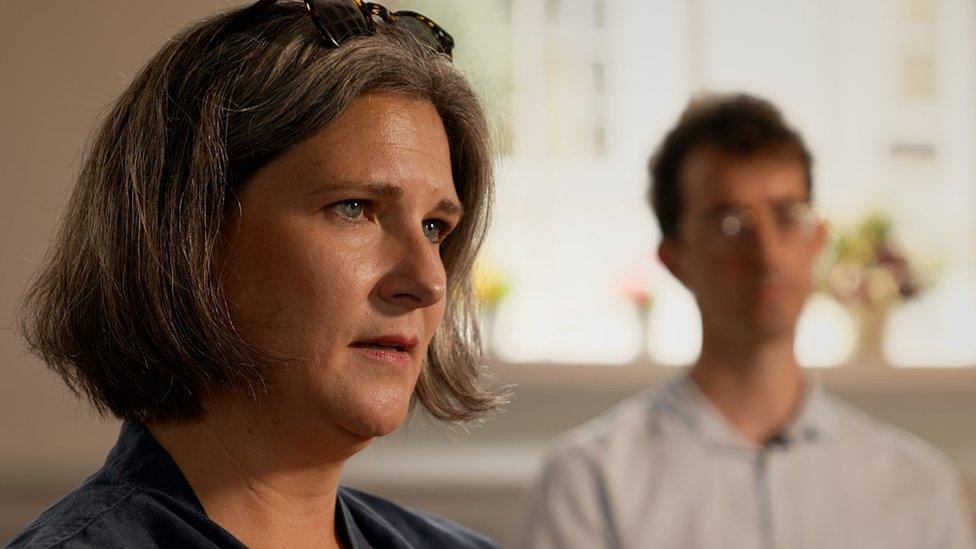
- Published18 October 2022
